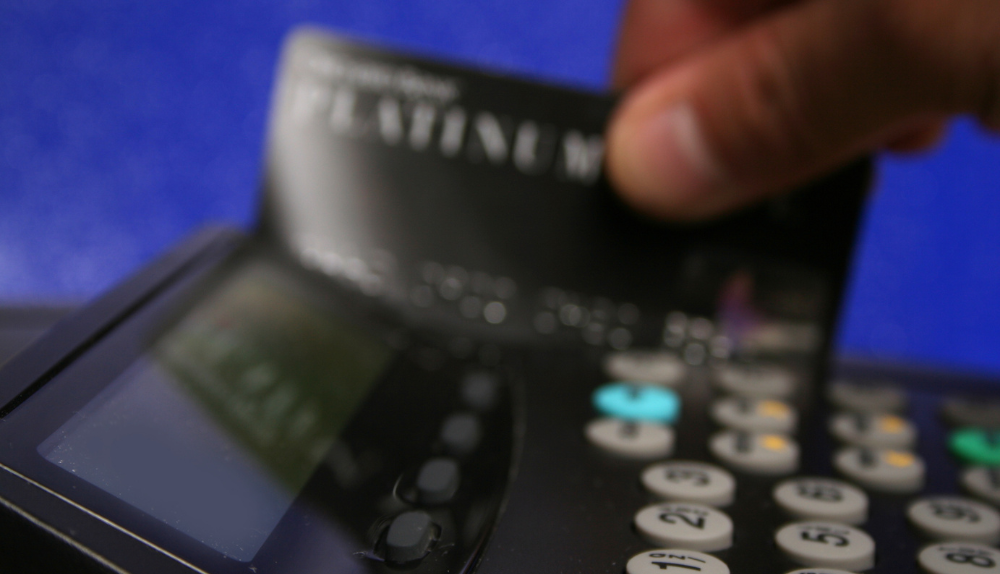
What Does A “Do Not Honor” Mean In Credit Card Processing?
- 09th Jun, 2023
- | By max
- | Uncategorized
“Do Not Honor” is a response code in credit card processing that carries significant implications for merchants and customers. The card issuing bank declines the payment authorization when a transaction receives a “Do Not Honor” response. This response code indicates that the cardholder’s issuing bank has refused to authorize the transaction for various reasons.
Importance of understanding the meaning of “Do Not Honor”
Understanding the meaning of “Do Not Honor” is crucial for merchants as it allows them to promptly identify and address transaction issues. By recognizing this response code, merchants can take appropriate actions to resolve the problem and ensure a smooth payment process. Promptly addressing these issues can help prevent revenue loss and maintain customer satisfaction.
Reasons for a “Do Not Honor” Response
The common factors behind this code response are:
Insufficient funds or credit limit
When a cardholder attempts a transaction, the issuing bank checks the available funds in the associated account. The issuing bank will send a “Do Not Honor” response if the account balance does not cover the transaction amount. Insufficient funds result in the decline of the transaction as adequate funds are available for the payment.
Impact of exceeding the credit limit
Credit cards have predefined credit limits set by the card issuer. If a cardholder exceeds their credit limit, subsequent transactions may receive a “Do Not Honor” response. Exceeding the credit limit indicates that the cardholder has reached or surpassed their allowed credit amount, and the issuing bank declines the transaction to prevent additional charges that would exceed the available credit.
Suspicious or fraudulent activity
Role of fraud prevention measures
Fraud prevention measures are crucial in detecting and mitigating suspicious or fraudulent activity. Issuing banks and payment processors employ various tools and techniques to identify potentially fraudulent transactions and protect cardholders and merchants. These measures include:
Fraud monitoring systems: Advanced algorithms and artificial intelligence analyze transaction patterns and detect anomalies that may indicate fraudulent activity.
Card verification methods: Additional security measures like CVV (Card Verification Value) codes, 3D Secure authentication, and address verification help verify the card’s authenticity and prevent unauthorized use.
Risk assessment: Issuing banks assess the risk associated with each transaction based on transaction amount, location, and cardholders’ spending patterns.
Common indicators of suspicious activity
Several indicators may raise suspicion of fraudulent activity in credit card transactions. Merchants and payment processors are vigilant about the following red flags:
Unusual purchase patterns: Unusual or atypical spending behavior, such as multiple high-value transactions in a short period or frequent purchases from different geographic locations, can signal fraudulent activity.
Multiple failed payment attempts: Multiple failed attempts to authorize a transaction using the same card or different cards may indicate fraudulent behavior.
Inconsistent cardholder information: Mismatched or inconsistent information provided during the transaction, such as billing address, shipping address, or cardholder name, can raise suspicion.
Unusual transaction timing: Transactions occurring at odd hours or outside the cardholder’s regular spending patterns can indicate fraudulent activity.
Unusual transaction types: Transactions involving high-risk goods or services, such as luxury items, electronics, or digital goods, may be more prone to fraudulent activity.
It’s important to note that these indicators are not definitive proof of fraud. Still, they serve as warning signs for merchants and payment processors to exercise caution and employ additional security measures to protect against potential fraudulent transactions.
Incorrect card details or expired card
Impact of expired or invalid card information
When a cardholder’s card details, such as the expiration date or card number, are incorrect or outdated, it can result in a “Do Not Honor” response. A card’s expiration date indicates the period during which the card is valid for use. If the card has expired, the issuing bank will decline the transaction, as the cardholder should have received a new card with updated details. Similarly, if the card number or other vital information is incorrect or invalid, the transaction will be declined to prevent potential misuse of the card.
Importance of accurate card details
Accurate card details are crucial for successful payment processing. Cardholders need to provide the correct and up-to-date information when making transactions. The accuracy of card details ensures a seamless payment experience and minimizes the chances of encountering a “Do Not Honor” response. Key reasons highlighting the importance of accurate card details include:
Transaction success: Accurate card details, including the card number, expiry date, and CVV code, are required for successful payment authorization. Any inaccuracies or discrepancies can lead to transaction declines.
Avoiding disruptions: Inaccurate card details can cause delays or disruptions in the payment process. Customers may need to update their card information or provide alternative payment methods, which can inconvenience both the customer and the merchant.
Fraud prevention: Accurate card details help prevent fraudulent transactions. Fraudsters often rely on incorrect or stolen card information to make unauthorized payments. By ensuring accurate details, the risk of fraudulent activity can be reduced.
Customer satisfaction: Providing accurate card details ensures a smooth payment experience for customers. It minimizes the chances of transaction declines, allowing customers to complete their purchases without hassle or frustration.
Merchants should emphasize the importance of accurate card details to customers and guide how to verify and update their information when necessary. By promoting accuracy, merchants can enhance customer satisfaction, minimize payment processing issues, and maintain a secure payment environment.
Actions to take when encountering a “Do Not Honor” response
Actions to take when encountering a “Do Not Honor” response are:
Contacting the cardholder
Communication and interaction with the cardholder ensure a smooth and secure credit card transaction process.
The significance of verifying cardholder information
When a “Do Not Honor” response is received, it is crucial to contact the cardholder to confirm their data and ensure the transaction’s legitimacy. Verifying cardholder information serves several purposes, including:
Fraud prevention: Contacting the cardholder allows merchants to confirm that the authorized cardholder initiated the transaction, not by someone else attempting to use stolen card details.
Resolution of issues: Communication with the cardholder allows addressing any potential problems that may have caused the decline. By gathering accurate information and understanding the circumstances, merchants can work towards resolving the issue and proceeding with the transaction successfully.
Enhanced customer service: Contacting the cardholder demonstrates a commitment to excellent customer service. It allows merchants to assist, answer questions, and offer support, improving customer experience.
Best practices for communicating with customers
When contacting customers regarding a “Do Not Honor” response, it is essential to follow these best practices:
Professional and polite communication: Maintain a courteous and professional tone throughout the transmission. Treat customers with respect and empathy, understanding that transaction issues can be frustrating.
Clear explanation: Clearly explain the reason for the declined transaction, including the “Do Not Honor” response, without disclosing any sensitive information—a guide on resolving the issue, such as updating card details or using an alternative payment method.
Multiple communication channels: Offer customers multiple channels to reach out, such as email, phone, or live chat. Provide flexibility to accommodate their preferred method of communication.
Prompt response: Strive to respond to customer inquiries or concerns promptly. Timely responses demonstrate attentiveness and dedication to resolving the issue efficiently.
Data security: Ensure customer information is handled securely and in abidance with data protection regulations. Protect sensitive information and follow best practices for data privacy.
Using an alternative payment method
Using an alternative payment method can offer businesses additional flexibility and convenience in processing transactions while providing customers with alternative payment methods.
Exploring other payment options
When encountering a “Do Not Honor” response, exploring alternative payment methods the cardholder can use to complete the transaction may be beneficial. These options can include:
Different card: If the cardholder has another valid card, suggesting an alternate card can help complete the payment successfully.
Different payment gateway: Suggesting a different gateway may resolve the issue if the merchant offers multiple payment gateways.
Digital wallets: Encouraging digital wallet services, such as Apple Pay, Google Pay, or PayPal, can provide an alternative payment method that bypasses the need for card details.
Benefits of offering multiple payment methods
Offering multiple payment methods benefits both merchants and customers in the following ways:
Convenience for customers: Providing various payment options allows customers to choose the most comfortable method, increasing comfort and improving the likelihood of successful transactions.
Increased conversion rates: Offering multiple payment methods reduces the chances of customers abandoning their purchase due to a “Do Not Honor” response or inability to use their preferred payment option. This can lead to higher leads and increased sales.
Mitigation of risk: By diversifying payment options, merchants reduce their reliance on a single payment method, minimizing the impact of issues like declined transactions or technical difficulties.
Assessing the transaction and reattempting
Ensuring successful payment processing requires careful evaluation of transactions and implementing effective reattempt strategies.
Analyzing the nature of the transaction
After encountering a “Do Not Honor” response, assessing the nature of the transaction is essential to determine the appropriate course of action. Consider the following factors:
Transaction amount: Evaluate whether the transaction amount may have triggered the decline. Significant or unusual transaction amounts may sometimes lead to a “Do Not Honor” response as a precautionary measure.
Transaction history: Review the customer’s transaction history to identify patterns or previously declined transactions that may provide insights into the current decline.
Risk assessment: Assess the overall risk associated with the transaction based on factors such as the customer’s profile, the type of goods or services being purchased, and the transaction’s location.
Considerations before retrying the payment
Before reattempting the payment, consider the following factors:
Customer confirmation: Ensure the cardholder confirms their willingness to proceed with the transaction before retrying the payment.
Timing: If the initial decline was due to temporary issues, such as network connectivity problems or system errors, waiting a reasonable amount of time before reattempting the payment can increase the chances of a successful transaction.
Payment gateway response: If the decline was due to technical issues with the payment gateway, confirm that the problem has been resolved before retrying the payment.
Customer communication: Inform the customer about the reattempt and provide any necessary instructions or assistance to ensure a smoother transaction process.
Carefully considering these factors helps make informed decisions about whether and when to reattempt the payment.
Merchant obligations and responsibilities
As a merchant engaging in credit card processing, it is essential to understand obligations and responsibilities to ensure compliance and maintain a smooth payment processing experience.
Compliance with payment card industry standards
Ensuring adherence to payment card industry standards for security and compliance include:
PCI DSS requirements
Merchants are obligated to adhere to the Payment Card Industry Data Security Standard (PCI DSS), which comprises a series of security measures implemented by leading credit card networks. Its purpose is to safeguard cardholder data and guarantee secure payment processing. The set of stipulations encompasses the following:
Building and maintaining a secure network: Merchants must install firewalls, use unique passwords, and secure their systems against vulnerabilities.
Protecting cardholder data: Sensitive cardholder data, such as card numbers and security codes, must be encrypted during transmission and storage. Data retention should be limited, and access to stored data should be restricted.
Implementing strong access control measures: Merchants should restrict access to cardholder information, assign unique IDs to employees, and regularly monitor and test access controls.
Regularly monitoring and testing networks: Merchants should monitor their networks for vulnerabilities, conduct security testing, and maintain an information security policy.
Maintaining an information security policy: Merchants must have a comprehensive data security policy that addresses the protection of cardholder data and outlines procedures for handling security incidents.
Implications of non-compliance
Failure to comply with the Payment Card Industry Data Security Standard (PCI DSS) can result in substantial consequences for merchants. These repercussions may include:
Fines and penalties: Non-compliant merchants may be subject to fines imposed by the card networks. These fines can be substantial and vary depending on the intensity and duration of the non-compliance.
Loss of customer trust: Failure to comply with security standards can damage a merchant’s reputation and erode customer trust. Customers may hesitate to transact with a merchant that does not prioritize the security of their payment information.
Data breaches and financial losses: Non-compliance increases the risk of data breaches and illegitimate access to cardholder data. Such incidents can result in financial losses, legal liabilities, and damage to the merchant’s brand.
Limited processing capabilities: Non-compliant merchants may face limitations or restrictions on their payment processing capabilities, as acquirers and payment processors may require compliance as a condition for service.
Compliance with PCI DSS is essential for merchants to protect cardholder data, maintain a secure payment environment, and meet the expectations of the payment card industry. By adhering to these standards, merchants demonstrate their commitment to information security and build customer trust.
Preventing “Do Not Honor” Responses
To prevent “Do Not Honor” responses in credit card processing, businesses can implement the following strategies:
Implementing fraud prevention measures
Merchants are responsible for implementing robust fraud prevention measures to minimize the occurrence of “Do Not Honor” responses. Some effective fraud prevention practices include:
Transaction monitoring: Utilize fraud detection tools and systems that analyze transaction patterns, detect suspicious activities, and flag potentially fraudulent transactions for further investigation.
Address verification: Implement Address Verification Service (AVS) to verify that the billing address filed by the customer matches the address on file with the card issuer. This helps decreases the risk of fraudulent transactions.
Card verification: Use Card Verification Value (CVV) checks to verify the three-digit security code on the back of the card. CVV checks add an extra layer of security and reduce the likelihood of fraudulent transactions.
Device fingerprinting: Employ device fingerprinting techniques to identify and track unique characteristics of devices used for transactions. This helps identify potential fraudsters attempting to use multiple devices or engaging in suspicious behavior.
Velocity checks: Set transaction velocity limits to monitor and limit the number of transactions allowed within a specific time frame. This helps detect and prevent fraudulent activities like card testing or bulk purchases.
Ensuring card data accuracy and validity
Merchants should ensure the accuracy and validity of card data provided by customers. This helps reduce the chances of “Do Not Honor” responses due to incorrect or expired card details. Key considerations include:
Card expiration date checks: Validate the expiration date provided by the customer to ensure it is not expired. Prompt customers to update their card details if necessary.
Card number validation: Implement algorithms or software to validate the card number structure to ensure it is a valid card number format. This helps catch potential input errors or invalid card numbers.
Cardholder name verification: Verify that the cardholder’s name provided during the transaction matches the name associated with the card. Mismatches could indicate potential fraudulent activity.
Real-time authorization: Seek real-time authorization from the card issuer for each transaction. This allows immediate validation of the card’s validity and availability of funds, reducing the risk of “Do Not Honor” responses.
Encourage customer verification: Prompt customers to double-check and confirm their card details during the transaction process to minimize errors and reduce the likelihood of “Do Not Honor” responses.
By implementing effective fraud prevention measures and ensuring the accuracy and validity of card data, merchants can proactively reduce the occurrence of “Do Not Honor” responses, protect against fraudulent activities, and enhance the overall payment experience for customers.
Final Thoughts
By understanding the meaning of “Do Not Honor” responses, implementing preventive measures, and fulfilling merchant obligations, businesses can minimize payment challenges, enhance transaction success rates, and provide customers with a secure and satisfactory payment experience. Merchants must stay informed about industry standards, continuously adapt their practices, and prioritize customer satisfaction and data security to thrive in the evolving credit card processing landscape.


